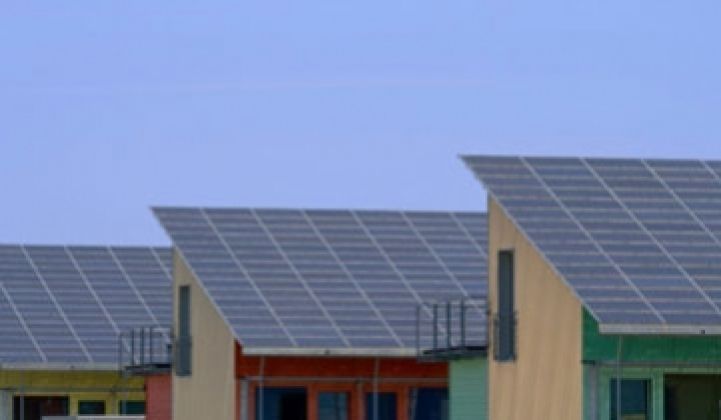The Achilles' heel of the solar industry is the phone.
Although customers are increasingly interested in installing panels on their roofs, most never act on the impulse, according to Jack Hidary, a serial entrepreneur behind fast-growing Global Solar Center (GSC), a software company that wants to automate solar installation and in the process take the mystery out of solar for consumers anywhere in the U.S.
Consumers and commercial building owners don't fully understand the costs and credits, he said, and often have trouble getting answers out of the installers. As a test, GSC employees called 150 installers in 30 states posing as homeowners looking for quotes.
"We often never got called back... Their ability to take new projects is limited" said Hidary, who founded Vista Research and Earthweb/Dice before getting into alternative energy. "There are tens of thousands of jobs that are lost in the pipeline."
To top it off, consumers don't really know how to rate solar installers and then can get stuck with under-performing, inefficient systems.
GSC, which has been in beta for around 90 days, is trying to get around these problems through a database and set of software tools it has developed for estimating solar jobs online. The database includes details on every solar incentive-federal, state, and local-in the country. It is also linked up to satellite data. (Note: GSC is not related to Global Solar, the CIGS solar module maker.)
Potential customers go to the site, punch in information on their building and power consumption, and GSC delivers a quote to them that can then be executed by a dealer in its network. Performing the quote online cuts costs and obnoxious amounts of paperwork, but more importantly eliminates much of the friction that can prevent consumers or businesses from taking the solar plunge. GSC's system can handle both residential and commercial bids and provide estimates and payback periods for photovoltaic panels and/or solar thermal water heaters.
While the job quote is largely compiled by computer, the final bid is massaged and finessed by a solar expert.
"A human always looks at the data," Hidary said. "We have former solar installers on staff."
Sungevity and RoofRay have similar solar estimating tools already on the market. The difference between these earlier companies in some ways revolves around timing. Sungevity started in 2008 as a solar installer with software for cutting down the cost and time involved in putting together a bid for a solar system. Earlier this year, it started licensing its software and services to other solar installers. It started as an installer mostly because it had to prove that the concept worked, according to Sungevity execs.
GSC, effectively, has been able to skip that initial "prove it" stage. Instead, it has concentrated on software and has lined up 60 installers in different areas of the country to do the roof work. If these installers use the software on a project, GSC gets a portion of the revenue.
GSC's software platform is also more comprehensive than what competitors offer, argues Hidary. (We are running a taste test right now and will get back to you with results.) Sungevity to date has mostly concentrated in California. GSC's platform can provide information and quotes in most U.S. markets.
Hidary prompted a friend living in New Jersey, who also works in alternative energy, to try the tool. The combination of local and national rebates in that state, it turns out, can cover close to 90 percent of the cost of a system.
"On the spot he agreed to buy solar," he said. "Solar is quite cost-effective in many parts of the country."
Although the company has only been accepting solar bids for three months and is still in beta, business is booming, said Hidary. Millions of solar deals have already been signed that in some way relied on GSC's software.
"There is an eight-figure pipeline of deals," he said.
The dealer network, potentially, can also wring out some of the quality and reliability issues that chronically hamper the solar industry. Simply, some installers are good, some stink, and the ones that stink can give the whole industry a bad reputation.
"There is no J.D. Power for Solar," he said.
GSC is vetting its dealers/installers and trying to line up some of the better ones in a given region. Ultimately, being part of a network could be seen as a form of validation to consumers. Computer integrators used national branding and networks like this in the 1980s and '90s.
Solar City, the large California-based installer, has become a member of the GSC network. Another member of the network is based in Long Island, New York and is an expert on how local zoning ordinances can impact solar installations.
Interestingly, many believe that Walmart, Best Buy and other national chains will soon begin to ramp up solar installation businesses to bring greater reliability to the installation industry.
Image courtesy Global Solar Center



